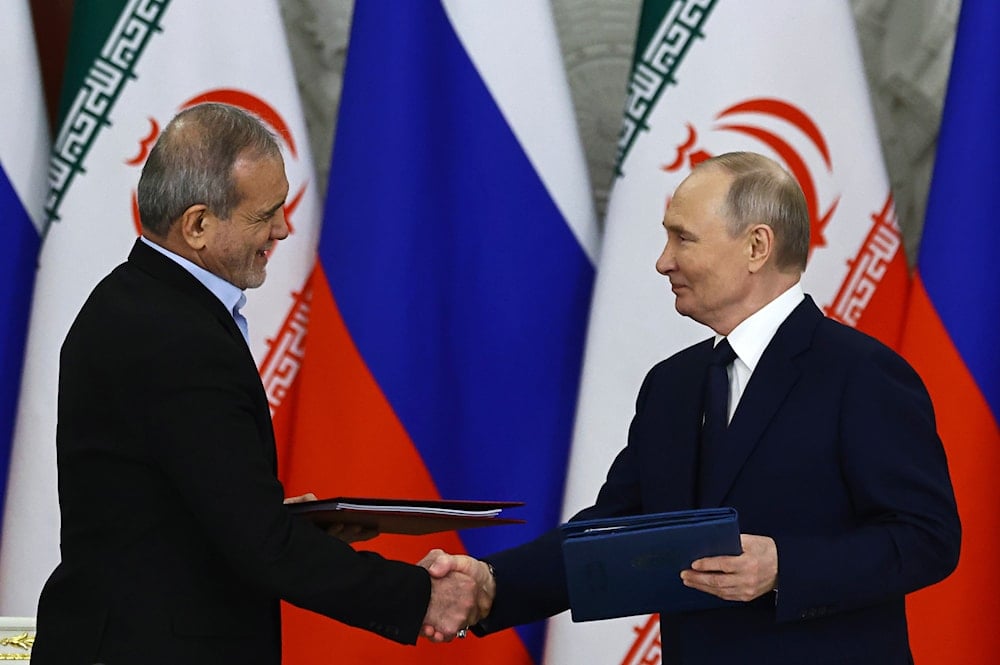Russia-Iran strategic partnership goes into effect
Russia and Iran have officially enacted a comprehensive strategic partnership treaty, strengthening cooperation in defense, energy, trade, and regional security.
-

Russian President Vladimir Putin, right, and Iranian President Masoud Pezeshkian attend a signing ceremony at the Kremlin in Moscow, Russia, Friday, Jan. 17, 2025. (AP)
The comprehensive strategic partnership treaty between Moscow and Tehran came into effect on Thursday, the Russian Foreign Ministry announced.
In a statement, the ministry said, "The Comprehensive Strategic Partnership Treaty between the Russian Federation and the Islamic Republic of Iran, signed by Russian President Vladimir Putin and Iranian President Masoud Pezeshkian in Moscow on January 17, 2025, became effective on October 2."
It emphasized that the coming into force of the agreement "marks an important milestone in the history of Russian-Iranian interstate relations that have reached a new level of broad strategic partnership."
The ministry further explained that the document establishes key long-term priorities for bilateral cooperation, which include strengthening their collaboration on the international stage in response to the evolving multipolar world order.
This entails close coordination within major multilateral associations and joint efforts to enhance regional stability and security while addressing common challenges and threats.
Russian President Vladimir Putin and his Iranian counterpart Masoud Pezeshkian signed the treaty in Moscow on January 17, with Putin subsequently approving it in April by signing the ratification law. Moscow and Tehran view this agreement as establishing a long-term partnership and enabling closer coordination on regional and international issues, reflecting a strategic direction to confront shared challenges and solidify comprehensive cooperation between the two countries.
Terms of the agreement
The agreement encompasses enhanced cooperation across various sectors, particularly in trade, economy, energy, and defense, while also stipulating the conduct of joint military exercises and the maintenance of a high level of security coordination.
Both parties affirmed their commitment to refrain from supporting an aggressor should either nation face an armed attack and to prevent their territories from being used to support separatist movements that threaten their territorial integrity.
The agreement commits both nations to developing joint projects in peaceful nuclear energy and constructing new facilities, while also fostering cooperation to build a financial infrastructure independent of third countries, including the development of a Russian gas pipeline through Azerbaijan to Iran, as the parties are currently negotiating the pricing mechanisms.
Both sides agreed to confront sanctions they deem "internationally unlawful" and pledged not to join any unilateral coercive measures or restrictions against one another, with the agreement also stipulating enhanced media cooperation to counter disinformation campaigns and negative propaganda.
The two nations will also provide mutual assistance in preventing both natural and man-made disasters.

 3 Min Read
3 Min Read








